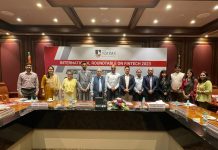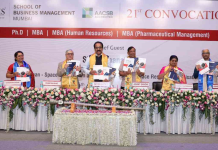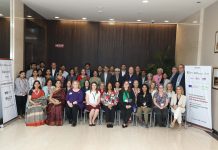Study on Society’s Expectations from Business in Addressing COVID-19 Crisis
The COVID-19 outbreak is unprecedented in terms of its uncertainty. It has raised alarming health crisis and its impact has paralyzed the life of the people as well as the institutions across the world. In the days ahead the world will be successful in bringing out a suitable vaccine to address COVID-19 and the threat will eventually fade, as it did with the other epidemics like Ebola, Zika, and Severe Acute Respiratory Syndrome (SARS). But the devastating effects of COVID-19 will last for a few years.
In India, more than 80 per cent of the workforce is employed in the informal sector. The lockdown due to COVID-19 has disproportionately hurt the most vulnerable and marginalized communities due to loss of livelihood and lack of food, shelter, health, and other basic needs.
During adversities, the business intervention has always emerged as an exigency for the revival of normalcy and the inclusion of business contribution towards COVID-19 in Schedule VII of the Companies Act 2013 exemplifies it. In this context, the Jasani Centre of Social Entrepreneurship & Sustainability Management and the Social Responsibility Forum of Students, NMIMS Mumbai found it pertinent to conduct a study on Society’s Expectations from Business in Addressing COVID-19 Crisis. The major objective of the study was to gauge people’s views on what businesses can do to mitigate the ramifications of the COVID-19 crisis as part of their corporate social responsibility practice.
The survey was conducted by floating a self-administered questionnaire at pan India level and responses were collected from 670 respondents.
Key Findings
- While many groups are affected by COVID-19 crisis, elderly and daily wage earners are impacted the most according to the survey results. Respondents opined that as the entire country is under a social and economic shutdown until April 14, it is trying time for those who survive on daily labour. They include landless agricultural labourers, petty traders, tailors, barbers, construction workers, rickshaw/auto/Ola/ Uber drivers and many others. Followed by senior citizens who are staying alone.

- Respondents shared that though as an afterthought a few states have declared measures like cash transfer and food supply through PDS, going by the anecdotal evidence across India the plight of millions of inter-state migrant workers is deplorable and lot more needs to be done.
- Respondents opined in preference of their rank order that businesses can extend their immediate support in up-gradation of medical facilities. As our fragile healthcare infrastructure needs to be fixed to face the pandemic. Immediate support could be offered by supplying food to the poor, health staff, police personnel and other support staff failing which it will exacerbate problems.

- COVID-19 has had “tangible effects” on the attainment of Sustainable Development Goals (SDG). It has complicated SDG implementation efforts and is indicating risks in achieving SDG targets on health, food security and decent work. In this context, the survey respondents in their rank order preference felt that the business must make investments in improving access & availability of medical care, maintain good community hygiene & sanitation to address critical health issues. Besides investment in creating employment opportunities for the economically constrained, investment in medical research and provision of technological/technical support to hospitals in rural and remote areas were also indicated.

- The survey confirms that the public at large has faith in the potentials of the business community in addressing the COVID-19 crisis. A little over than one-fourth of the respondents feel that the synergy between public and private organizations shall go a long way in addressing the challenges.

- The survey confirms from the recommendations extended by the respondents that to ensure economic, environmental and social sustainability we need an appropriate mix of economic policies, fiscal stimulus, investments in healthcare and social protections. For instance respondents have suggested businesses’ should develop robust Business Continuity Plans (BCP) to minimize the economic loss. There is a need to work closely with governments to set up medical facilities in rural areas to improve access and availability of health care. Through public-private partnerships, efforts must be made to create livelihood and employment opportunities for both urban and rural poor and strengthen the MSME sector which is the backbone of the many local economies. These efforts will not only help the vulnerable communities but will go a long way in creating shared value and sustaining both businesses and society.
Research By – Dr Meena Galliara, Dr Srinivas Ainavolu, Dr Vidya Naik, Faculty Members, SBM, NMIMS & Rishika Radhakrishnan, Shubham Bhoir and Srinidhi Kashyap, SRF Committee, SBM representatives



































